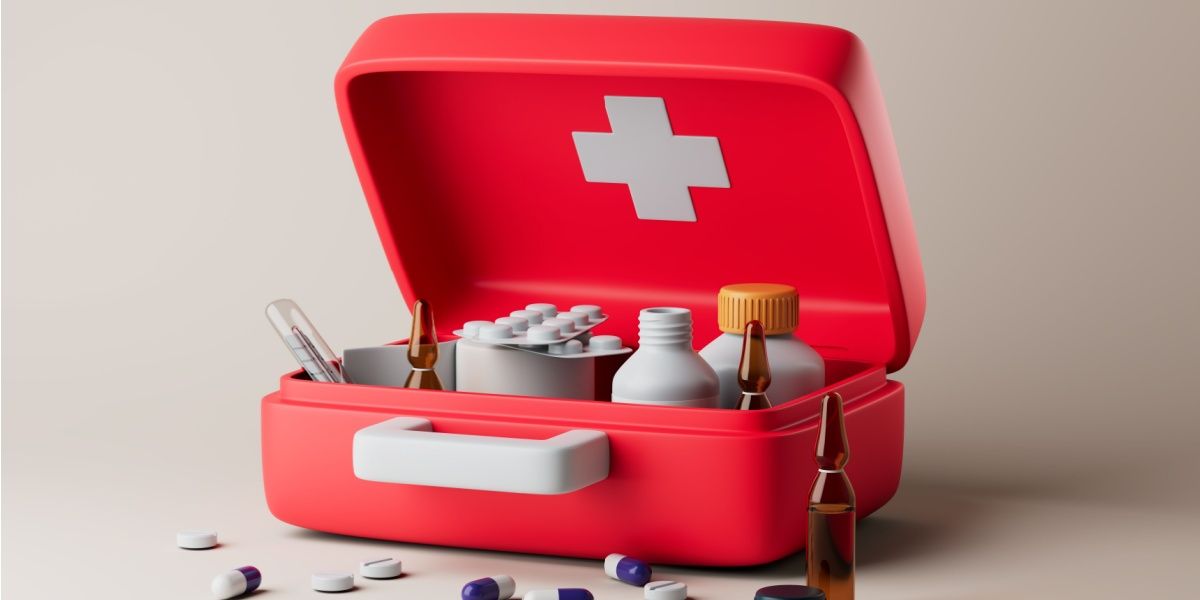Reports show that young people over the age of 12 years commonly experience issues with alcohol or substance use and mental health. Student Assistance Programs (SAPs) are school-based interventions that can be utilized to prevent and treat these difficulties, giving young people the best chance of academic success and improved well-being.[1]
.jpg?v=1723564961)
What are Student Assistance Programs (SAPs)?
Student Assistance Programs (SAPs) are evidence-based intervention strategies and support services that are provided and implemented within the school setting. They are designed to meet the needs of young people with issues around emotional, behavioral, and academic functioning.
Young people spend a large proportion of their time at school, where they are significantly influenced by their peers, teachers, and school programs. This means that school staff have a good opportunity to provide crucial support to young people with issues that are impacting their academic performance and well-being.
SAPs can help identify, prevent, treat, and manage potential and ongoing issues faced by students, particularly issues that introduce barriers to learning, such as:[1][2]
- Mental health issues, including suicidal ideation
- Substance use and misuse issues
- Abuse and neglect
- Relationship difficulties within the family home or among peers
- Exposure to violence, crime, or risk of harm in the home or community
Do SAPs help students with substance abuse issues?
SAPs can be beneficial programs to help students with substance abuse issues. They can help identify substance use issues and implement necessary preventive or treatment strategies within the school or with specialist referrals.
Statistics show that 4% of 12-17-year-olds experience a substance use disorder, highlighting the need for early intervention to be implemented for this age group.[3]
Often, substance use issues occur concurrently with mental health issues.[4] SAPs can help young people find support for and manage these difficulties, integrating all aspects of the individual in their support plan.
School professionals can help identify substance use issues in young people, by recognizing warning signs and assessing individual needs. They can then refer to specialist SAPs professionals who can provide tailored support to the young person, including counseling and skills development, to manage behaviors and issues relating to substance use.[1]
Reports show that young people who utilize prevention and intervention strategies such as SAPs have a better chance of improving their academic performance and well-being than those who do not.[5]
The benefits of SAPs
SAPs can be tailored to each individual and provide support in various aspects of the young person’s life. This typically includes providing services around issues with mental health, substance use, and violence within the home or community.
The benefits of SAPs include:[1][2][6]
- Identifying: Teachers and school professionals can learn how to identify signs that a young person is experiencing issues. Once these difficulties and unmet needs are identified, services can be implemented to provide the young person with the necessary support.
- Preventing: SAPs can help young people receive early intervention, helping to prevent potential issues from occurring or increased risks of harm.
- Educating: SAPs services can include educating young people and providing them with the necessary skills to manage their issues in a supportive environment. This can include self-regulation, self-control, problem-solving, responsible decision-making, developing healthy relationships, setting personal goals, learning coping strategies, and improving resilience.
- Intervening: SAPs can include a range of supportive services to help young people, including school-based interventions and services provided by external agencies.
- Referring: SAPs can help school staff recognize the specific needs of young people and refer them to specialist support that meets their individual requirements.
- Supporting: SAPs services can be instigated before, during, and after the onset of mental health or substance use issues. This support can help young people receive the care they need during a crisis, as well as helping with relapse prevention and ongoing recovery support and after-care. (Related: Real Talk Recovery training for students)
- Integration: SAPs can provide all of the above benefits to young people, helping them make behavioral and emotional improvements, which in turn can be integrated into the school setting, leading to an improvement in attendance and grades.
Who should use SAPs?
School leaders can introduce SAPs within their schools, providing education and support to teachers and other school-based professionals around the implementation of these services. School professionals can then use this knowledge to identify students who would benefit from these programs.
Typically, SAPs are best suited to students with personal or family issues related to mental health or substance abuse. Young people can utilize SAPs at any age, from kindergarten to grade 12. The program can be tailored to meet their individual needs.[1][2]
Professionals involved in SAPs can be school-based or community-based and can include teachers, counselors, social workers, psychologists, nurses, and other specialists. If necessary, other agencies may be involved, such as child protective services and law enforcement.
As often as appropriate, it can be beneficial for families to be involved in SAP services. This may include education around the child's needs so they can better support them or becoming involved in interventions such as family therapy.
Where to access SAP resources
Substance Abuse and Mental Health Services Administration (SAMHSA) provides various resources about SAPs and other student assistance interventions.
- Student Assistance: A Guide For School Administrators:https://store.samhsa.gov/sites/default/files/d7/priv/pep19-03-01-001.pdf
- Student Assistance Resources Guide: https://www.samhsa.gov/sites/default/files/tthy-2020-student-assistance-resources-guide.pdf
- Substance Misuse Prevention for Young Adults: https://store.samhsa.gov/sites/default/files/substance-misuse-prevention-pep19-pl-guide-1.pdf
- Ready, Set, Go, Review: Screening for Behavioral Health Risk in Schools: https://www.samhsa.gov/sites/default/files/ready_set_go_ review_mh_screening_in_schools_508.pdf
- Identifying Mental Health and Substance Use Problems of Children and Adolescents: A Guide for Child-Serving Organizations: https://store.samhsa.gov/sites/default/files/sma12-4700.pdf
Additional SAPs resources include:
- Office of National Drug Control Policy, Substance Use Prevention: A Resource Guide for School Staff: https://trumpwhitehouse.archives.gov/ondcp/additional-links-resources/resource-guide-for-school-staff/
- Prevention First, Student Assistance Program Guidebook: https://www.prevention.org/Resources/8cc13047-21cb-404a-874b-ec9f824ec3de/Student
- Washinton’s Student Assistance Prevention-Intervention Services Program, Program Manual: https://ospi.k12.wa.us/sites/default/files/2022-12/sapispmanual2012.pdf




